Top 15 Dietitian-Approved Weight Loss Tips for Women

Key Takeaways
You've likely heard how important it is to eat fewer calories than you burn when losing weight. And while there's some truth to that idea, it's not the only factor influencing and encouraging weight loss.
One of these factors may be your gender. Research suggests that men may lose weight faster than women, thanks to hormones and metabolic rates. And although more research can help make this idea clearer, we thought we'd spend a little time focusing on the specifics of weight loss for women.
Many women struggle with weight loss or find themselves on a weight-loss roller coaster, sometimes even gaining more weight than they started. Fluctuating weight can have negative health consequences in the long run, so it's a good idea to implement healthy habits or behaviors to focus on at the beginning of your journey.
Here are a few tips from a nutritionist to help you avoid plateaus, stay motivated, and get to your target weight.
1) Track Your Calorie Intake

Tracking your calorie intake can be a helpful tool. It provides valuable information during your weight-loss journey and serves as an accountability tool.
Little things (like grazing during the day) can lead to calories adding up. So, it's important to track everything you eat, including any calorie-containing beverages (coffee with creamer) or snacks you consume to kill hunger pangs throughout the day.
You may even find that you will be less inclined to graze by having to track these things, helping you with your weight loss efforts.
Free Tracking Tools to Try
- MyFitnessPal is one of the more popular calorie-tracking apps. You get a lot with the free version, including tracking meals and adding recipes. In addition, you can connect with other members and set goals using the app.
- Cronometer is a great app for setting custom targets.
- FatSecret doesn't have the most appealing name, but it's a popular food-tracking app. You can also track exercise and track your weight loss progress.
- Lose it! lets members take pictures of their food, appealing to people who don’t do well with other tracking tools.
While these tools are great for some, everyone will not benefit from this approach. For example, if you're the type to obsess over numbers or have a history of disordered eating, tracking your intake may not be the best approach. For some, it may be more of a trigger than a help.
2) Avoid or Limit Your Intake of Refined Carbs and Added Sugar

Refined carbs have highly processed flours, starches, and sugar. These foods have low nutritional value and contain lots of carbohydrates. Research suggests that eating a diet higher in refined carbohydrates can contribute to higher rates of type 2 diabetes.
In addition, some research also links the intake of highly processed carbohydrate foods to increases in insulin and fat deposits in the body. These increases can contribute to hormonal changes, leading to weight gain. Although there is still debate on what factors influence weight gain and obesity, it's safe to say a diet high in refined carbohydrates is unhealthy.
Another consideration is that these foods are often lower in nutrient value—eating more refined carbohydrates can lead to nutrient deficiencies and malnutrition. Remember, it's possible to be overweight and malnourished. When trying to lose weight and reduce calorie intake, it's crucial to ensure you eat nutrient-dense foods to minimize deficiencies. There is evidence that deficiencies in specific nutrients can lead to weight gain by impacting appetite regulation and metabolism.
Refined carbohydrates include many sweet dessert foods, including cakes or pastries. You can also find them in breakfast cereals, pancakes, pasta, and snack foods like crackers and pretzels.
Consider These Complex Carbohydrate-Containing Foods
- Fruits and vegetables
- Beans and legumes
- Dairy with no added sugar
- Whole grains (the less processed, the better. Also consider sprouted grains)
3) Eat More Protein
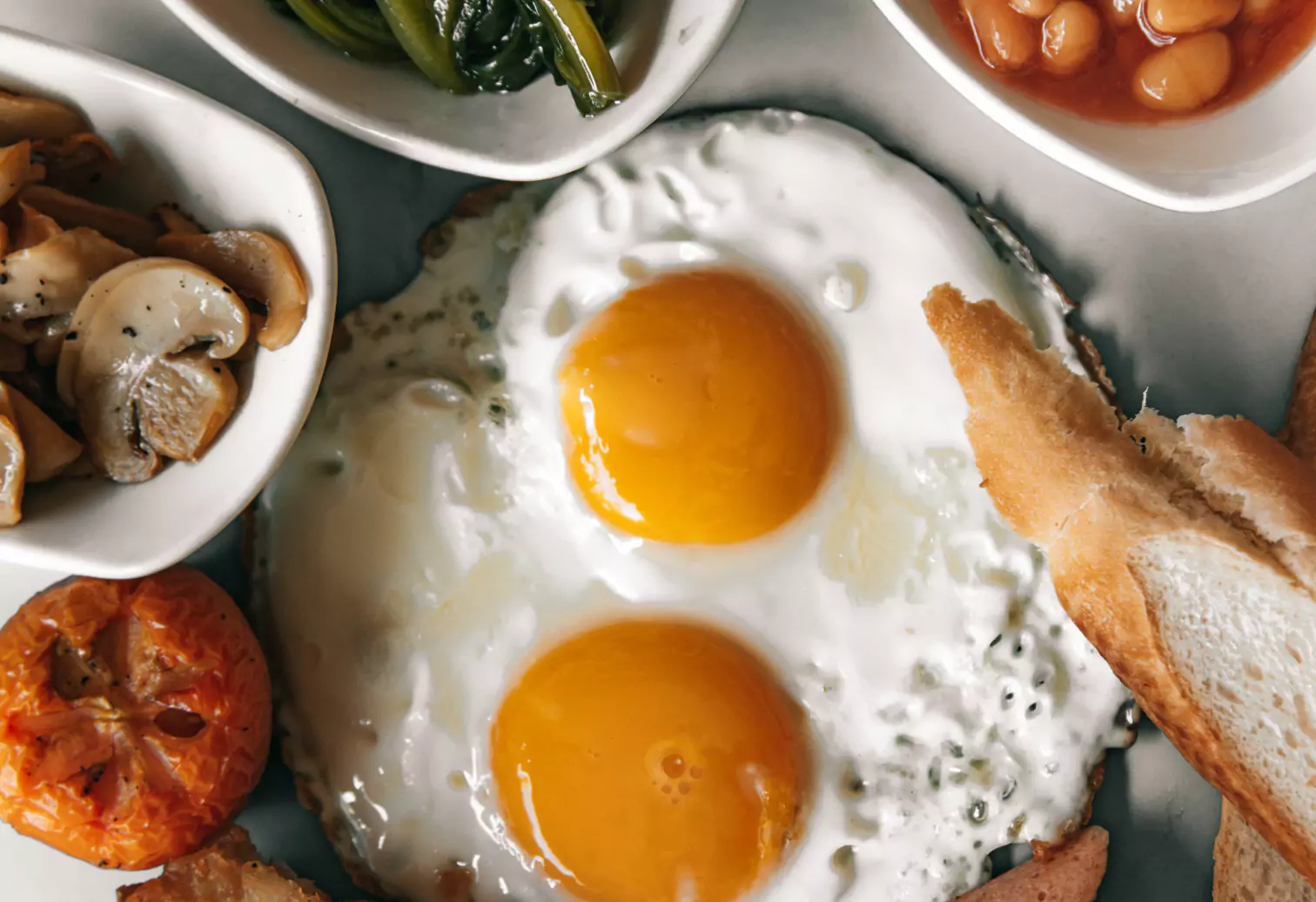
All the cells in your body need protein, but it's mainly well known as an essential nutrient for muscle building.
Undereating can be one factor that leads to weight gain. And when women reduce their calorie intake to lose weight, they often under-consume an essential nutrient that can help with weight loss efforts: protein. Protein can help slow digestion and help with the maintenance of muscle.
A common problem with weight loss is the loss of muscle mass, which can cause a decrease in metabolism. Eating adequate protein can help preserve muscle and promote fat loss.
Research suggests that eating around 1.2 to 1.6 grams per kilogram of body weight per day and about 25-30 grams of protein per meal is beneficial for weight management. There is also some evidence that eating a high protein diet can help preserve muscle mass and improve satiety.
Protein is found abundantly in meat, seafood, eggs, and dairy products. If you prefer to minimize meat intake or you're vegan, you will need to ensure you're getting adequate protein. Try adding protein sources like soy (tofu, tempeh, edamame), beans and lentils, nuts and seeds, and other meat alternatives to your diet.
Other Health Benefits of Eating More Protein
- Protein is vital for the function of the immune system so ensuring you are getting enough protein will provide all nine of the essential amino acids needed to support your body.
- Most people know that minerals such as calcium are important for bone health, but protein is a structural component of bone as well so eating an adequate amount of protein as well as nutrients such as calcium and vitamin D can help strengthen bones.
- Protein can also help lower blood pressure. Research suggests that eating a higher protein diet may help reduce blood pressure.
4) Eat Healthier Snacks
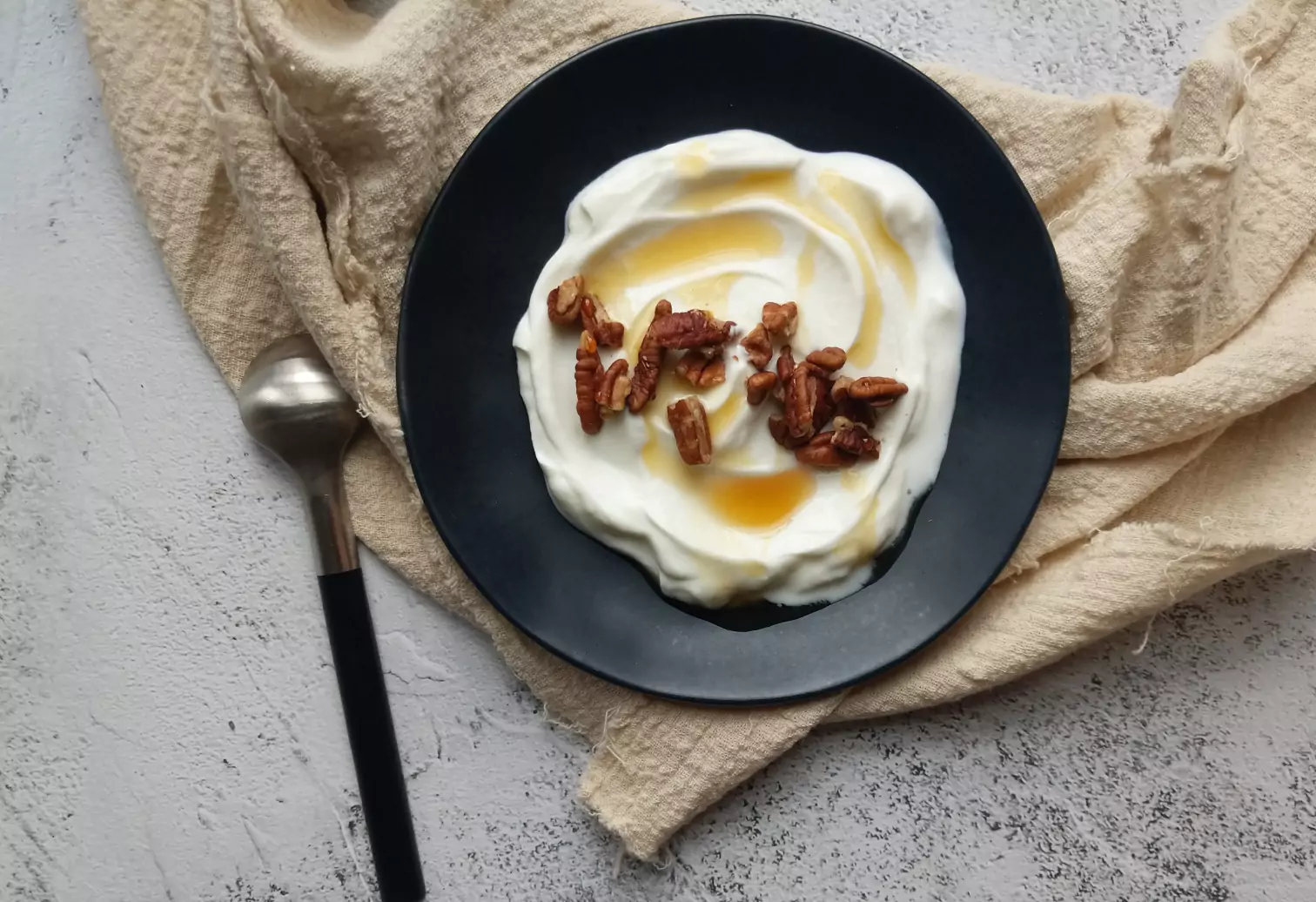
Many traditional snack foods are full of processed and refined carbohydrates—and they're not even very filling. Chips, crackers, cookies, and pretzels can all cause glucose spikes.
And because you digest the carbs in them quicker, you're also more likely to feel hungry within an hour or two after the snack. In addition, these foods can be hard to consume in moderation, making it more likely that you will eat more than one serving.
When you crave snack foods like chips, pour a serving out into a small bowl. If you eat directly out of the bag, you're more likely to overeat.
It's best to eat filling meals about three or four hours apart. But if you need to snack or feel better when you eat more frequent meals, consider a well-balanced snack that includes a combination of protein, healthy fat, and carbohydrate.
Healthy Snack Options
- An apple with peanut or almond butter.
- Plain Greek yogurt with some berries and seeds (chia or sunflower seeds, for example).
- Lightly salted and roasted edamame or roasted garbanzo beans.
- Hard-boiled egg and some tomato slices.
- A few cups of homemade popcorn with a handful of nuts.
- Tuna with whole-grain or seeded crackers.
5) Hydrate!
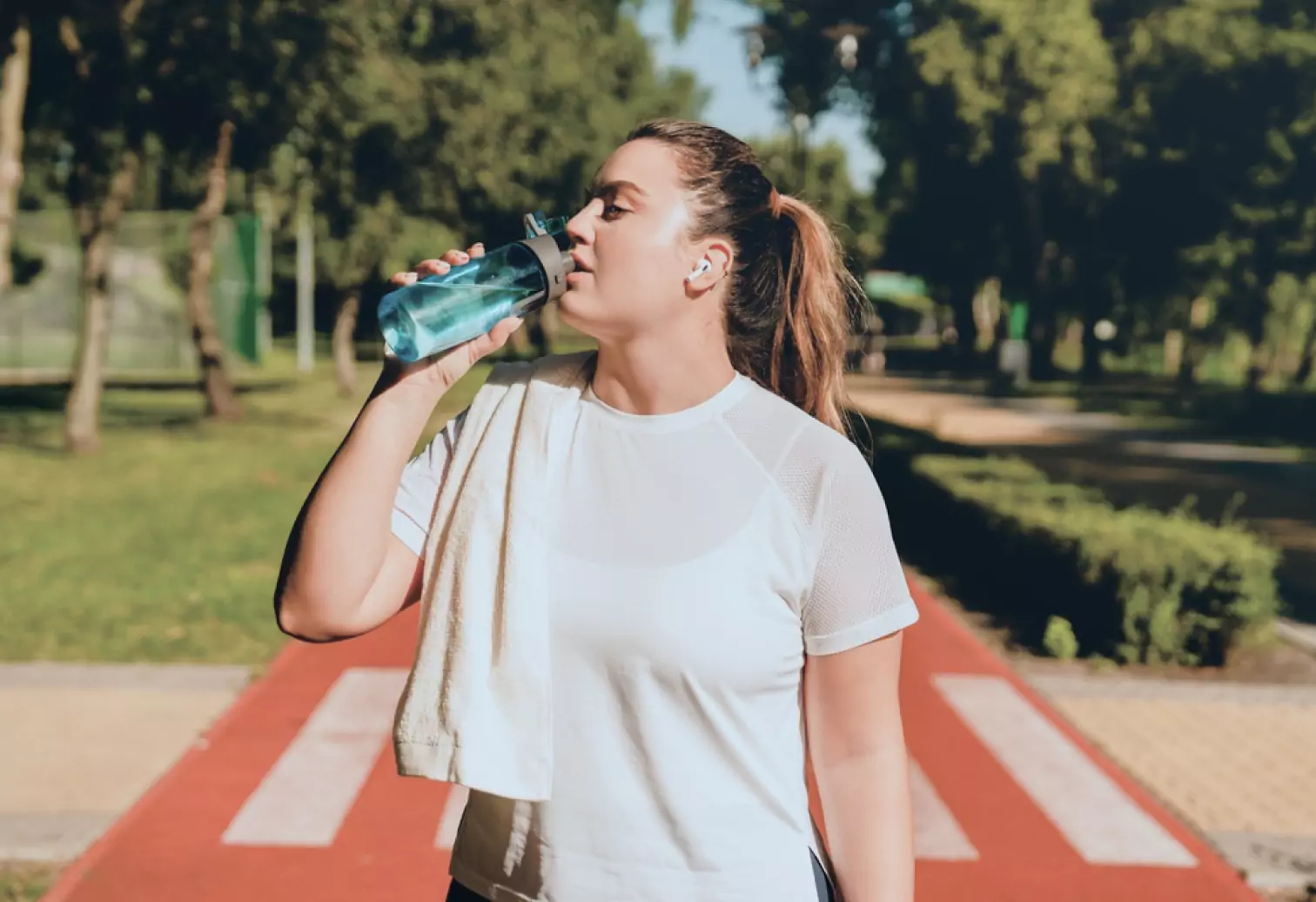
Your body works optimally when it's well-hydrated. You can also perceive dehydration and thirst as hunger, so try drinking some water first the next time you're hungry! There's also some evidence that being well-hydrated is associated with weight loss.
It's important to consider how you hydrate and what you choose to drink. Remember that sugary beverages like soda, fruit juice, sports beverages, and specialty coffees can lead to weight gain. These drinks are full of sugar and considered empty calories, which means they have little to no added nutrient value.
The sugar in these beverages is also rapidly absorbed. It can cause large spikes in blood glucose, stimulating insulin release. Insulin is an essential hormone in our body. One of its roles is to inhibit the fat breakdown and promote fat storage. The more sugar in the blood (due to intake of concentrated sweets or high carbohydrate meals), the larger the insulin response and the more likely this excess glucose will be stored as fat.
Tips to Hydrate Better
- Mainly drinking water and other sugar-free beverages such as unsweetened tea can work well for hydration.
- If you're particularly active, live in a hot, humid climate, or follow a lower-carbohydrate approach, you may need additional electrolytes.
- Adding some form of low-sugar electrolyte to your water can help promote hydration.
6) Include Weight Training
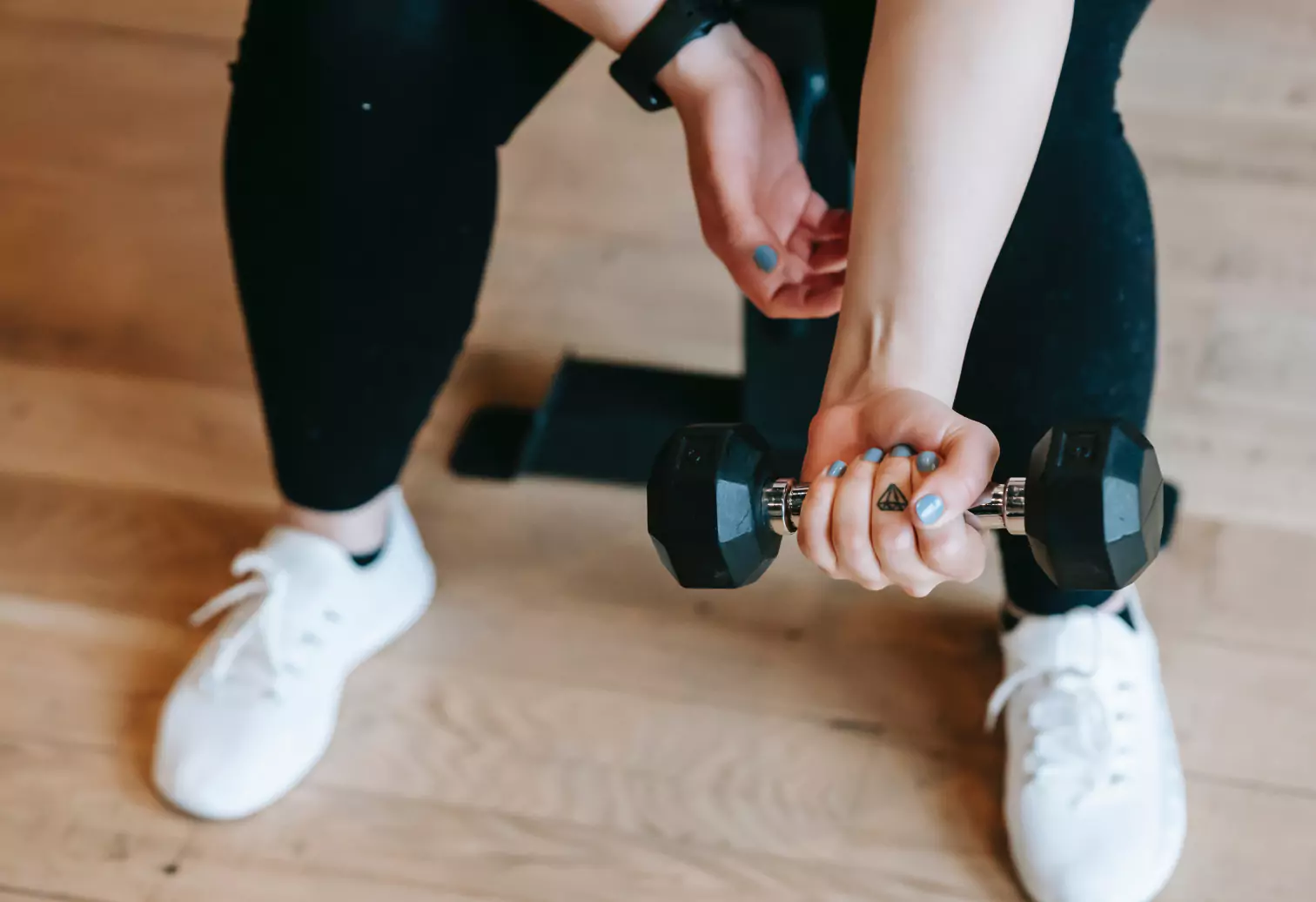
Aside from the brain, muscle is the most metabolically active tissue in your body. The more muscle you have, the higher your metabolic rate will be. This study found that resistance exercise showed the lowest risk for obesity when combined with aerobic exercise.
The caveat with adding weight training is that you may notice that your weight loss slows or stalls as you start to gain muscle. Because muscle weighs more than fat, you shift your body composition to increase muscle and decrease body fat. So, it's a good idea to take other measurements such as waist and hip circumference. As your body composition shifts, you may look leaner, but the number on the scale may not change as much as you would like.
As you start to increase muscle mass, you can work on fueling your body with adequate protein and watching your calorie intake. In time, this can lead to healthy weight loss.
A Sample Whole-Body Weight-Training Routine
- Squat either bodyweight or weighted (use barbell, kettlebell, or dumbbells): Three sets of eight to 12 reps.
- Row using dumbbell or kettlebell: Three sets per arm of eight to 12 reps.
- Floor press or bench press (using dumbbells or barbells) or pushups: Three sets of eight to 12 reps.
- Reverse lunge, either bodyweight or weighted (use a barbell or kettlebell): Three sets of eight to 12 reps.
- Slow-motion mountain climbers: Three sets of eight to 12 reps.
This routine is an example, but working with a personal trainer is an excellent idea if you are new to weight training because improper movements can lead to injuries. A trainer can also help provide a more targeted workout based on your personal goals.
7) Include Movement Throughout the Day

The more you move, the more energy you burn. Cardiovascular exercise can be super important for heart health, and there is evidence it does help in weight loss, but it might only result in modest weight loss.
It's important to consider how active you are for the remainder of your day. For example, even if you spend 60 minutes doing cardio but have a sedentary lifestyle, you may not get the same benefit as being active throughout the day. Some research suggests shorter bouts of exercise throughout the day, and getting more steps can have the most benefit for weight loss.
Try These Tips to Get Moving
- Sometimes it can be daunting to feel like you need an entire block of time to do a workout, so mini-workouts might be the best option.
- Break up your day with several smaller five to 10-minute workouts to help your metabolism and increase your energy levels. It can also help prevent the negative health consequences of sitting for too long.
- Consider walking to the store instead of driving or part farther away from your destination.
- If you have a sedentary job, consider getting a standing desk or standing up and walking around every 30 minutes.
8) Practice Mindful Eating
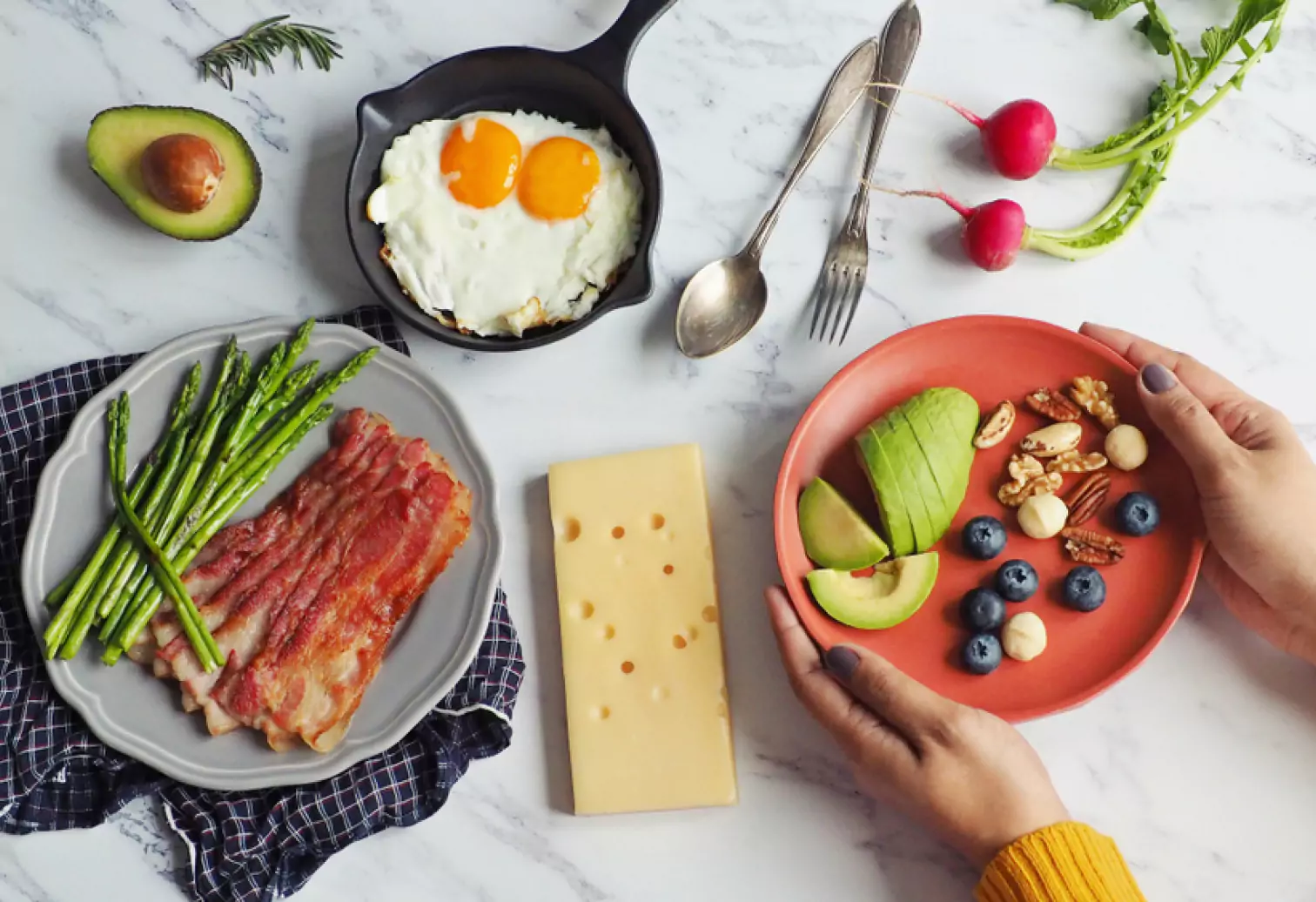
Mindful eating is an approach to food that involves eating mindfully, focusing on the sensual awareness and experience of your food. Mindful eating is being present and not being distracted during mealtimes.
It can be tough to do this in our busy, multi-tasking lives, where eating lunch while working on the computer seems to be the norm. You can eat an entire meal while being distracted and hardly realize that you ate anything.
Why Focus on Mindful Eating
- By being present for your meal and eliminating any distractions, you can focus on the taste and texture of the food and the signals your body is sending you.
- You are more likely to recognize feelings of fullness and satisfaction.
- Evidence shows that mindful eating can reduce food cravings, better portion control, and weight loss.
- A good start is to have at least one meal per day in which you can start to implement the strategy of mindful eating and go from there.
9) Work on Stress Management

Stress hormones can wreak havoc on our health, so it is not surprising that long-term stress can cause weight gain.
In this study looking at psychosocial stress, women who gained weight during the study (1995-2004) had higher stress levels and job-related demands. They also had higher perceived constraints in life, strains on relationships and family, and difficulty paying bills.
There are behavioral reasons why stress may cause weight gain. When you're stressed, you're likely to make unhealthy food choices or engage in emotional eating. Stress may also mean that a person will be less likely to exercise—this is unfortunate because exercise may help manage stress.
There may also be physiological reasons why stress can cause weight gain. It includes the role of the hormone cortisol and perhaps how stress can influence our microbiome, which is linked to weight gain.
Research does not support a clear link between higher cortisol and weight gain. But there is research that suggests that stress can impact the gut microbiome, and some evidence that changes in our microbiome could lead to weight gain. Most of this research is on mice, so a note of caution there, but it is promising.
We do know that stress can increase blood sugar and blood pressure, so lowering stress is essential for more than weight loss.
Quick Tips to Manage Stress
- Many people find meditation, mindfulness techniques, or breathing exercises helpful for both in-moment stress and chronic stress.
- Even a short walk outside can positively affect our mood and lower stress.
- There's a lot of information on stress management techniques, but it's essential to find what will work best for you. Consider working with a professional as you figure this out.
10) Keep Track of Non-Weight-Related Wins

In your pursuit of weight loss, you may lose track of other positive things. It's important to remember that weight is only a data point and that how you feel and your health is the most important thing.
If you only track weight as a measurement of success, you may be more likely to give up when you hit a plateau or life obstacle. Other positive things include other metrics and biomarkers like blood pressure, waist measurements, and blood sugar.
You can also include more subjective measures such as having more energy or finding it easier to make healthy meal choices.
Track These Non-Weight-Related Wins
- Your clothes fit better, or maybe you need to buy new clothes because your clothes are too loose.
- Your workouts are improving. You can lift heavier weights, run or walk faster, or even do more activities without feeling tired.
- You are sleeping better! You notice that you don’t wake us as often at night, and you feel more rested in the morning when you wake up.
- You can play with your kids or grandkids without feeling tired or winded.
- You notice fewer cravings for sweets and unhealthy snack foods.
- You get sick less often. Or, if you do get sick, you recover faster.
11) Add More Veggies to Your Diet
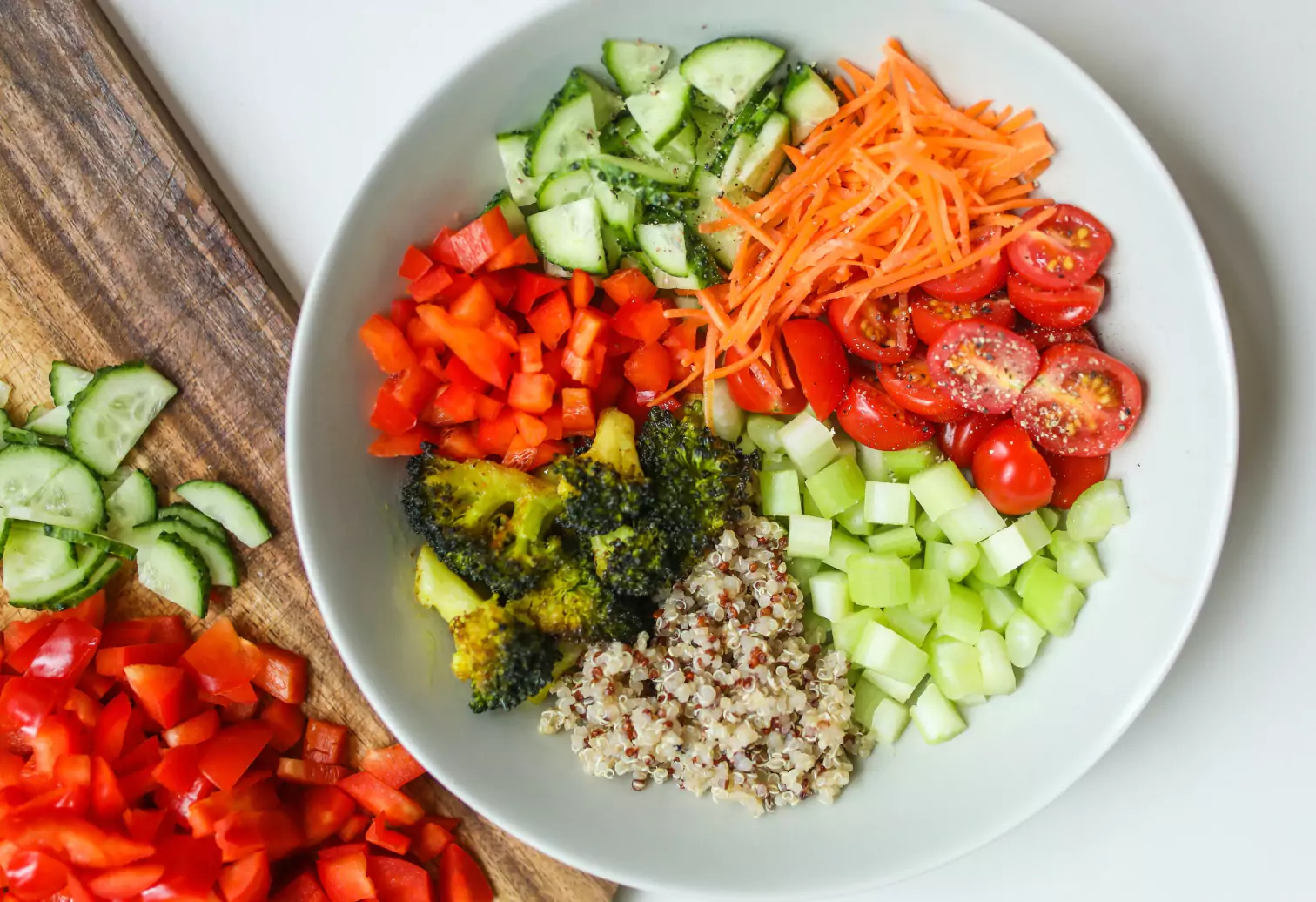
When you're trying to lose weight, you're likely focusing more on your diet. Adding more vegetables can be a helpful way to promote the process. Remember that these should be non-starchy vegetables low in calories and nutrient-dense.
Veggies are full of fiber and contain natural anti-inflammatory components that can aid in weight loss. There is a link between inflammation and weight. Inflammation can make it harder to lose weight, so following a diet that can help lower inflammation could be helpful for weight loss.
Higher fiber intake is also associated with weight loss, likely because it adds bulk to foods. So, adding fiber can help with the sensations of fullness without adding additional calories.
Best Vegetables to Add to Your Diet
- Cruciferous vegetables such as broccoli, Brussels Sprouts, cabbage, and kale are a rich source of vitamins and minerals including folate and vitamin K. They also contain phytonutrients that can help reduce inflammation.
- Leafy greens such as spinach, mustard greens, and collard greens contain a significant amount of B vitamins and folate that helps promote heart health and prevent birth defects.
- Beets are a wonderful vegetable to add to your diet because they contain potassium, vitamin A and antioxidants. In addition, beets contain nitrates that can help widen blood vessels.
- Carrots are another colorful vegetable to include in your diet. Carrots are loaded with beta-carotene, which is a precursor for vitamin A, which is important for eye health. They also contain vitamin K and calcium, both of which are important for bone health.
12) Focus on Sleep

If you've had a poor night of sleep and notice that you crave sweets the next day, you should know there's a biological reason for this. Sleep can influence hunger and fullness hormones!
Studies show that getting fewer than seven hours of sleep per night was associated with greater ghrelin levels (hunger hormone) and reduced levels of leptin (fullness hormone). In addition, lower sleep duration has links to a greater body mass index (BMI).
Another unfortunate side effect of a poor night of sleep is that our body does a poor job of regulating blood sugar the next day.
Focus on Getting a Good Night of Sleep
- The goal should be to get at least seven hours of sleep per night.
- Several strategies can help improve sleep, but finding a good bedtime routine and improving your sleep hygiene can be a good start.
- Minimize your exposure to blue light at night and find a way to wind down before you go to sleep that doesn't include technology.
13) Find Your “Why”

When you set a weight loss goal, you may want to consider your “why” and any potential barriers. It will come in handy when you need some extra motivation.
If you want to lose weight because your doctor told you to or want to look better in the mirror, it may not be enough to get you through cravings or motivate you to get out the door to exercise. If you can clearly identify “why” you want to reach your goal, you can stay focused and motivated. It will be different for everyone but should be meaningful to you.
Examples to Help You Find Your "Why"
- I want to be able to play with my children or grandchildren.
- I watched my mom suffer from the complications of diabetes, and I don’t want the same fate.
- I want to be able to run a 5k.
- I want to have the energy to do what I want to accomplish in life. I am sick of feeling tired all of the time.
14) Identify Potential Barriers

There will be barriers along the way. It's essential to identify possible obstacles before you start your weight-loss journey to develop a plan on how you will overcome them.
Barriers can be from other people, but they can also be self-imposed and may include things like self-doubt or self-sabotage. If you feel you struggle with this and need some help, it might be wise to seek some help from a counselor or therapist.
What Barriers Can Look Like
- Eating out is part of your daily routine, and it's tough to find healthy options that match your weight-loss nutrition plan.
- Your friend always wants to meet at a coffee shop where it's challenging to avoid the sweet treats.
- Your partner brings home ice cream, chocolate, or other temptations that you have difficulty avoiding.
15) Set Realistic Goals

If you have a goal of losing 50 pounds but don’t make any changes to your lifestyle, you will likely not be successful. In addition, if your goal is to lose 50 pounds in 60 days, this is unrealistic and even dangerous if done in an unhealthy way.
In general, a healthy weight loss is around one to two pounds per week. Remember that weight loss is never linear, and you may lose around five pounds one week, two the next, and then plateau for a few weeks before you see additional weight loss. Make sure to revisit your goals as you build new habits, as they will likely change a few times.
How to Set Realistic Goals
- Once you have found your “why,” identified barriers, and set an appropriate time frame, the next step is to create realistic goals.
- Start with behavioral goals that you feel confident you can accomplish and help you set in motion the habits that will lead to success.
- For example, set a goal like getting adequate protein or making sure to exercise daily for at least 30 minutes.
- If you don’t feel confident in achieving these goals, it likely is not a good goal.
- Too many goals can become overwhelming, so set two to three realistic goals.
- It helps some people to write them down or track them in a calendar or even tell a friend about goals to help with accountability.
Find the right Nutrisense programto turn insight into progress.
Go Beyond Glucose Data with Nutrisense
Your glucose can significantly impact how your body feels and functions. That’s why stable levels are an important factor in supporting overall wellbeing. But viewing glucose isn't enough. Nutrisense, you’ll be able to learn how to use your body's data to make informed lifestyle choices that support healthy living.
One-to-one coaching
Sign up to access insurance-covered video calls to work with a glucose expert: a personal registered dietitian or certified nutritionist who will help tailor your lifestyle and diet to your goals.
Monitor and measure what matters
With the Nutrisense CGM Program, you can monitor your glucose with health tech like glucose biosensors and continuous glucose monitor (CGM)s, and analyze the trends over time with the Nutrisense App. This will help you make the most informed choices about the foods you consume and their impact on your health.
Find your best fit
Ready to take the first step? Start with our quiz to find the right Nutrisense program to help you take control.

Amanda is a Nutrition Manager and Registered Dietitian, with a Masters in Dietetics from Stephen F. Austin State University. Originally from south GA, she got her undergrad degree from Texas Tech University. She worked at a hospital in Fort Worth, TX, for 4 years as a dietitian, counseling those living with HIV.




